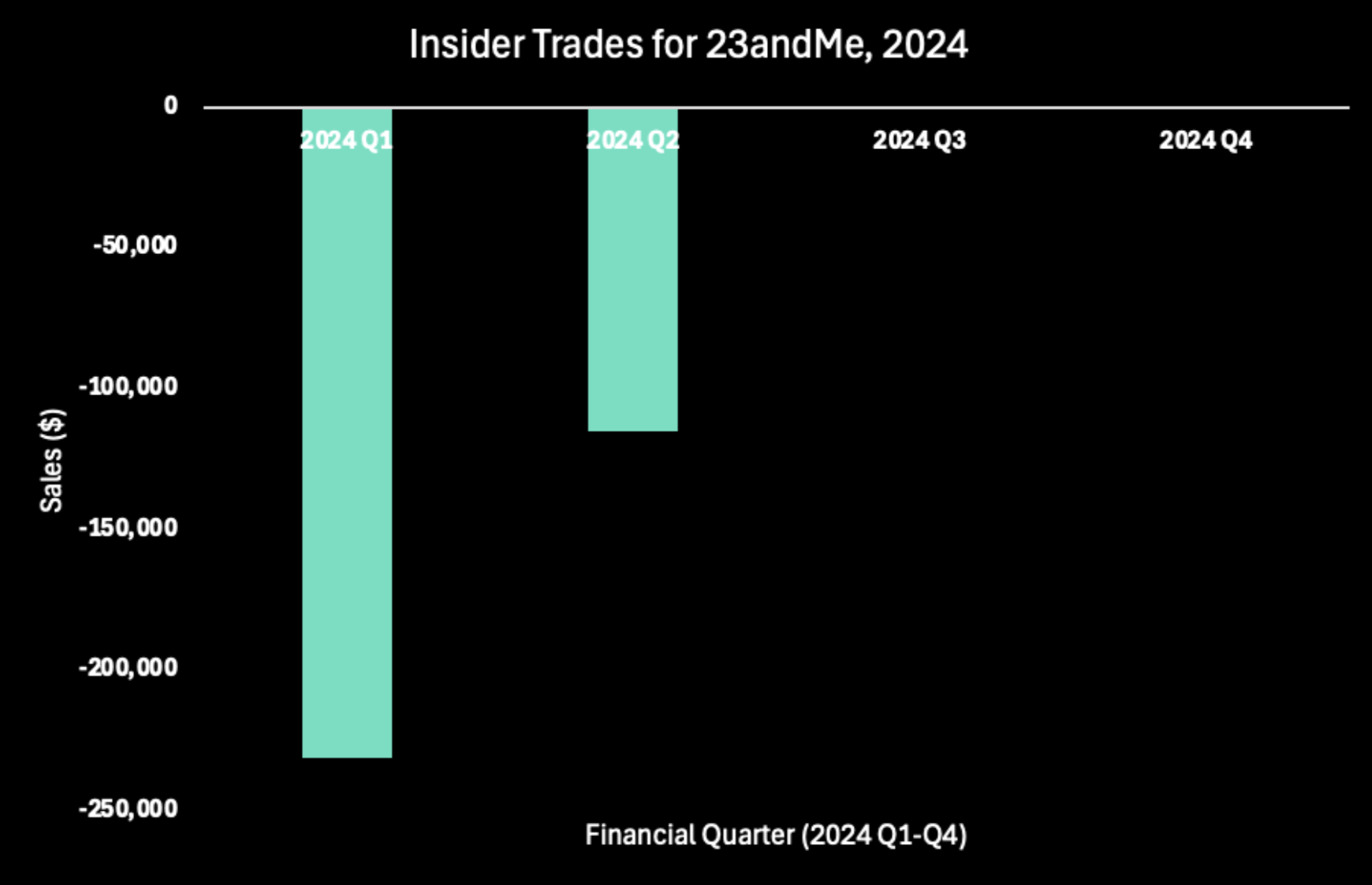American biotechnology company 23andMe filed for Chapter 11 bankruptcy this month, after several quarters of falling revenue. The filing has put the data of millions of users’ data up for grabs, as bidders seek to sweep up the personal genomics company.
Founded in 2006, the genetics startup rose to prominence through “spit parties” for celebrity investors. Sales of the company’s at-home genetic testing kits ballooned in the 2010s. When 23andMe went public in 2021, it held a valuation of $3.5 billion and an opening price of $13.32. Four years later, a share of 23andMe goes for just eighty-three cents ($0.83).
The previous darling of Silicon Valley has shown consistent signs of decline since 2022. The reasons for this fall in growth are numerous: for one, the market for at-home genetic testing has grown saturated. Competitors like AncestryDNA and MyHeritage, both vying for customers in the at-home genetics and health space, became larger players in the industry. But 23andMe also fell prey to a data privacy scandal in 2023. Hackers obtained personal data for almost half of the 15 million 23andMe customers. The scandal, which resulted in a lawsuit settlement of over $30 million, raised concerns for investors and customers about the safety of their data.
All reported insider trades since August 2022 have been sales, according to Quiver Quantitative data on individual trades. 23andMe insiders sold stock consistently from 2022 to 2024. The number of shares sold peaked between July 2023 and July 2024, with almost 500,000 shares sold by insiders. Corporate lobbying has also dwindled: in 2021 and 2022, 23andMe corporate lobbying was over $60,000 per annum. By 2023, this figure had sunk to only $20,000. Though corporate lobbying is just one metric for the company’s financial interests, it does show a consistent decline in political influence for 23andMe.

The largest concern generated by the bankruptcy filing is that the DNA data held by 23andMe is incredibly sensitive. Genetic information used by 23andMe, drawn from customer at-home testing kits, poses risks of identification for the nearly 15 million people who have used the service. 23andMe has reported that any buyer of the company must comply with law when determining how data will be stored and treated. However, lawmakers including California’s attorney general Rob Bonta are encouraging individuals to delete their data.



